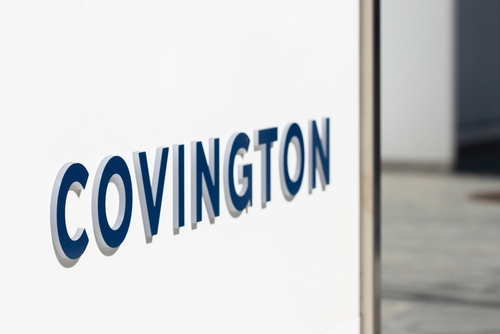This BigLaw firm is one of few without origination credits; it creates 'collaborative culture,' chair says

Covington & Burling is one of the few BigLaw firms that don’t use billing or origination credits in determining compensation. (Image from Shutterstock)
Covington & Burling is one of the few BigLaw firms that don't use billing or origination credits in determining compensation.
Covington instead compensates partners “based on their overall contributions to the firm,” law firm chair Doug Gibson told Law.com.
“It’s a subjective standard, and we take into account all the different ways in which partners contribute. It, of course, includes efforts and successes in developing client relationships and generating work,” Gibson said. “But it also includes other contributions such as working as members of teams to do great creative work for clients, pro bono efforts and assisting on firm committee work.”
Gibson said the pay model encourages staffing based on expertise, helps partners work well together, helps retain talent and attracts lateral hires.
“Most of our lateral partners come from firms with origination-based models, and they’re painfully aware of the downsides of those models. So we attract people who want to work within our collaborative culture and within our system,” Gibson told Law.com.
Law.com spoke with firm recruiters about Covington’s approach. Recruiter Jeffrey Lowe, managing partner at Jeffrey Lowe Partners, told the publication that not using origination credit is fairly unusual within the Am Law 100, which consists of the nation’s top 100 grossing firms.
Lisa Smith, a principal at Fairfax Associates, noted a downside. Not tracking origination credits can lead to reliance on perceptions, rather than hard data.
The system “can tend to favor people who are touting their successes more than people who may be quietly developing clients and expanding relationships,” she told Law.com.
Write a letter to the editor, share a story tip or update, or report an error.



